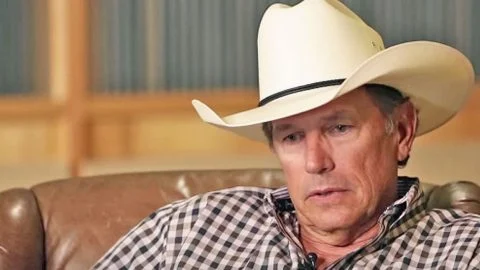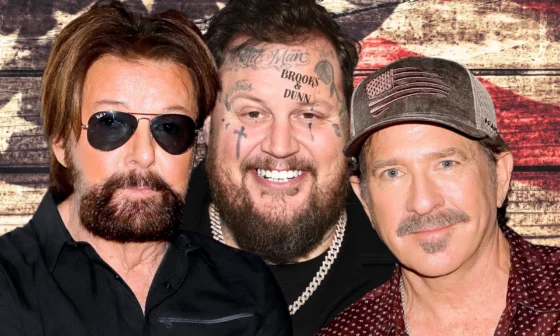Originally written by James Dean Hicks and Roger Murrah and first recorded by Conway Twitty in 1988, “Goodbye Time” has become a beloved country classic for its honest portrayal of heartbreak and quiet acceptance. Over the years, it’s been reimagined by different artists, but two standout versions—by Blake Shelton and John Foster—offer strikingly different takes on the timeless ballad.
Blake Shelton introduced the song to a new generation in 2005 on his album Blake Shelton’s Barn & Grill. His version climbed into the Top 10 on Billboard’s Hot Country Songs chart and remains a fan favorite. With his smooth, resonant baritone and traditional country production, Shelton delivers a performance that feels polished, steady, and mature. It’s reflective, not showy—carrying a sense of emotional distance that mirrors the acceptance in the lyrics. The full-band arrangement with guitar, steel, and drums adds weight and richness, giving his version a studio-quality finish that still hits home in live settings.
But then came John Foster. Just 16 years old and fresh off American Idol, Foster delivered a soul-stirring version of “Goodbye Time” that felt like a personal confession rather than a cover. Whether playing guitar or sitting behind a piano, his voice—warm, worn, and slightly raspy—carried raw emotion with every note. Critics and fans alike were moved by the vulnerability he brought to the stage. His stripped-down arrangement allowed the words to breathe, letting each line sink in with quiet power. Live performances dedicated to close friends added to the authenticity, making audiences feel like they were witnessing something real and unfiltered.
Side by side, Shelton’s version represents polish, tradition, and respectful homage, while Foster’s is a breath of fresh air—intimate, emotionally direct, and unexpectedly deep for someone so young. Shelton reinforces the song’s legacy; Foster revives it for a new era with viral impact and heartfelt storytelling.
In the end, which version shines more depends on what moves you: the classic strength and studio precision of Blake Shelton or the vulnerable, stripped-down intensity of John Foster. Both honor Conway Twitty’s original in their own way, each finding new life in a song about letting go.






